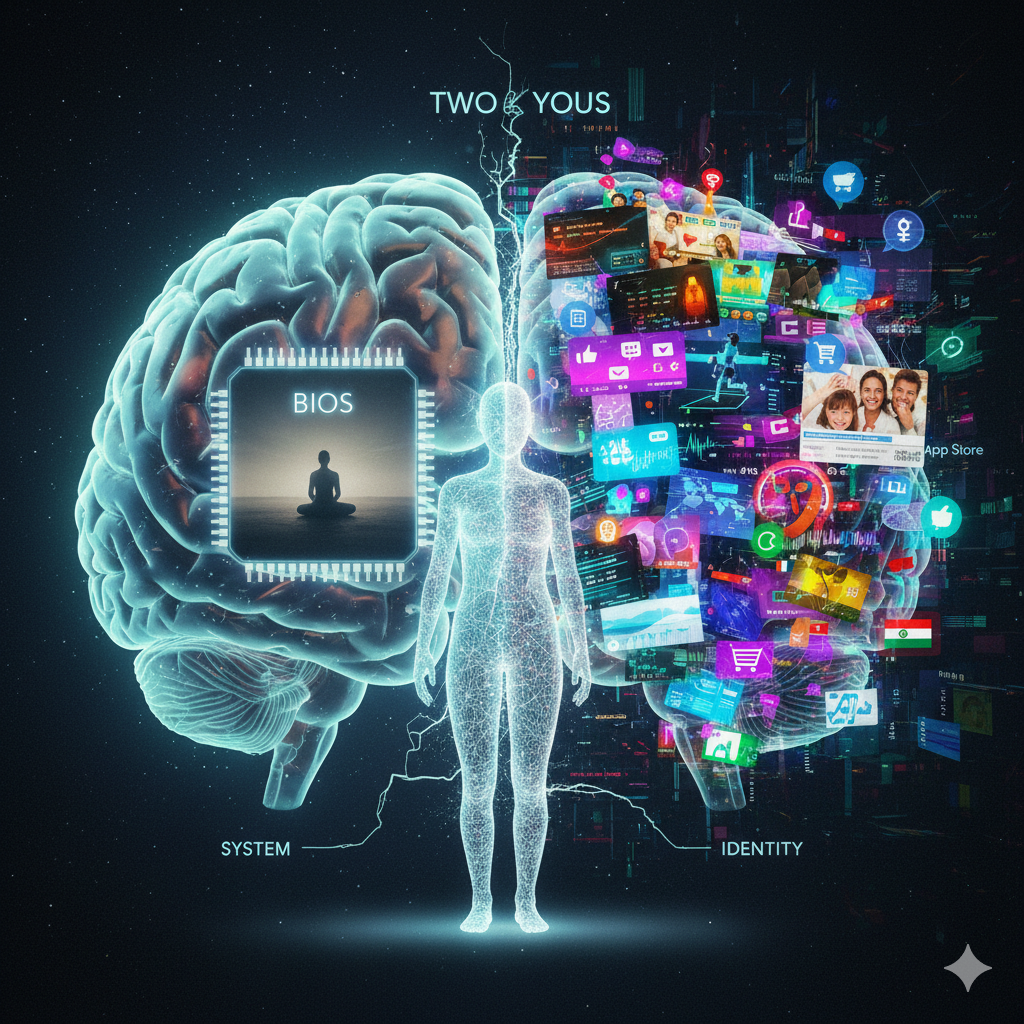Your Brain Has Two You's: The Operating System and the App Store

TL;DR: Your sense of self is a mix of your factory-installed “you” (the core wiring) and a heavily customized “you” (the social software others have installed).
Let’s Dig In
Think of your mind as a computer with two distinct parts.
First, you have the BIOS level—the core, factory-installed operating system. This is the “You Who Is Sitting Alone in a Quiet Room.” It’s your original, raw temperament: your basic need for safety, your innate sensitivity to light or sound, and the primal wiring that controls your most basic drives like hunger and sleep. It’s the silent, baseline version of you that doesn’t need applause or approval. This system is largely non-negotiable; it’s what your hardware is designed to do.
Second, you have the App Store Level—the personality you present to the world, the “You Who Imagines How Others See You.” This is your identity, a complex program built by years of external installation: your parents’ expectations, your culture’s rules for success, your religion’s fears, and your society’s need for you to be a productive worker or a defined group member (race, class, nationality).
Every expectation you feel—the need to stay busy, the pressure to buy a specific lifestyle, the constant anxiety over not being enough—is a heavy, high-CPU-use app running in the background. Your brain is a masterpiece designed to sleep from dusk till dawn, but the digital world’s apps keep it awake, demanding a response, an update, a validation ping. Your feelings of chronic anxiety and dissatisfaction are often just the sound of these incompatible, heavily customized programs crashing against your core, original BIOS.
The key to greater peace isn’t to reach some elusive “happy destination” sold to you by a commercial app. It’s to run a diagnostic check on your own mind. Figure out which anxieties are genuinely your BIOS warning of danger and which are just the loud, power-hungry apps that someone else installed to keep you running in their system. Once you see the separation—what you inherited and what you installed—you gain the power to start deleting.
Go Deeper:
The Philosophical Concept of Self (Stanford Encyclopedia of Philosophy) Self-Concept in Psychology: Definition, Development, Theories (Verywell Mind) Social Constructionism: Understanding Identity and Difference (Open Books)